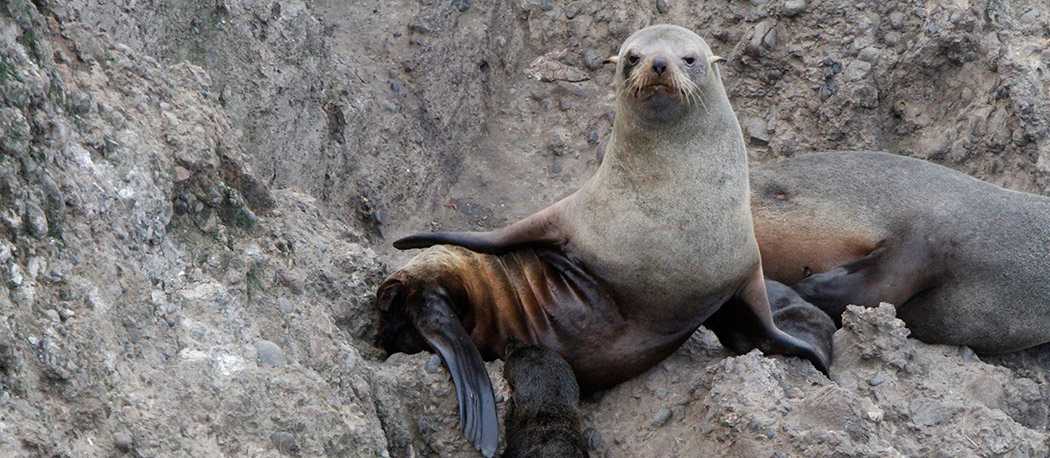
Investigating The Effects Of Climate Change In Fur Seal Immune Systems
March 04, 2022
Learning how climate change may lead to disease in wildlife, companion animals and people is the goal of new research at the University of Guelph’s Ontario Veterinary College (OVC).
 Dr. Mauricio Seguel, a professor in the Department of Pathobiology, studies how wildlife immune systems develop, especially early and late in life when the immune system is more sensitive to disease. His lab team is investigating how environmental changes in the ocean affect milk quality in fur seals and, ultimately, the immune systems of their pups.
Dr. Mauricio Seguel, a professor in the Department of Pathobiology, studies how wildlife immune systems develop, especially early and late in life when the immune system is more sensitive to disease. His lab team is investigating how environmental changes in the ocean affect milk quality in fur seals and, ultimately, the immune systems of their pups.
“Immunocompromised animals are more susceptible to getting severely sick from a disease,” says Seguel. “This can impact disease spread within a population.”
The researchers will conduct their two-year research project in Peru and Patagonia, where many fur seals live.
As with maternal milk for newborn humans, milk provides the first nutrients for fur seals and helps to cultivate their gut microbiota. Those micro-organisms in the gastrointestinal tract have many functions, including regulating the animal’s immune system. Poorer quality milk could impact development and cultivation of gut microbiota, further compromising pups’ immunity.
Seguel says climate change decreases the availability of nutritious food for fur seal mothers, which could alter fur seal milk quality and lead to health repercussions for pups down the line.
If the team discovers that lower-quality milk affects health of seal pups, they will investigate ways to solve this health deficit.

“We want to see how these variations in milk quality impact the development of fur seal young,” he says. “We are mainly interested in looking at the impact on their immunity.”
He added: “It starts with one animal. This can create a domino effect and have a major effect on a population level.”
Just as SARS-CoV-2, tuberculosis and influenza stemmed from wildlife, infectious diseases in immunocompromised wildlife could quickly spread globally to humans and companion animals.
Seguel says climate change could make global pandemics like COVID-19 more frequent in the future.
Although this research project is being conducted in South America, Seguel says it’s relevant for animals and people in Canada, especially as infections can quickly spread globally.
“Our research shows how interconnected everything in the world is. This is why it’s important to look at these issues holistically and obtain the bigger picture of the issue.”
This research is funded by the Morris Animal Foundation and OVC.
.png)